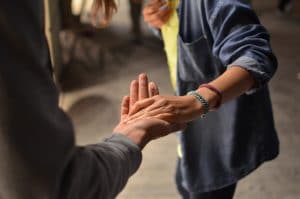Editor’s Note:
During CDB’s annual forum in 2020, we had the pleasure of inviting Professor Tao Chuanjin from the School of Social Development and Public Policy at Beijing Normal University as one of our coordinators at the roundtable discussions. After the forum, CDB had the chance to once again approach Professor Tao and discuss with him about Chinese social organisations in great depth and detail. Below is an article dedicated to building on Tao’s views on social governance, the responsibility of public welfare organisations, and what the future holds for the sector at large.
CDB: Professor Tao, what has your current research been focusing on?
Tao Chuanjin: It generally focuses on social organisations (SOs) and in particular, public welfare organisations (PWOs). The core of PWOs are their programmes, the results of which are evaluated to measure how effective they are to solve social problems.
CDB: In 2019, you proposed in the China Foundation Forum conference that SOs should be more involved in social governance. Can you elaborate on the concept of social governance in the context of China?
Tao Chuanjin: The academic definition of “social governance” is a little bit complicated so I will try to explain this term by using examples in our everyday life.
The definition of governance has evolved over the years. In traditional Chinese society, “governance” means to manage something well. Yet, in the modern era, the meaning of “governance” has incorporated new elements: to manage something well through non-bureaucratic and non-tyrannical methods. In a societal setting, for example, within a community, it is ideal to make all decisions through a democratic and equal voting process. Outside a community, more actors are to be involved: the government, social organisations, enterprises, the individuals, etc., but through the same voting mechanism. When the government does not take the absolute dominant position and control other actors through oppressive approaches, it is possible to manage and solve certain social issues with as many actors involved as possible. Therefore, in contemporary times, social governance means managing social issues well through democratic methods.

CDB: What have PWOs in China contributed to social governance?
Tao Chuanjin: As I briefly mentioned above, social governance has evolved over the years: from top-down management of society solely by government bureaucracy, to gradually creating space for other social actors to get involved through democratic methods. One thing needs to be noted is, the space might be more available for individuals to manage social and public affairs along with the government, yet as individual citizens, people can hardly contribute to social governance directly; they have to set up some forms of communities or organisations to govern with the authority. Hence, SOs are an indispensable part for social governance; they are the precondition.
If we consider from the perspective of development stages of PWOs, my team and I have noticed there are five different stages during which PWOs’ roles in social governance vary. Currently, the vast majority of Chinese PWOs are in the first stage, where organisations tend to only consider themselves as supplementary to the government’s functions, especially during disasters. For examples, many PWOs and other types of SOs provided direct aid (such as cash and goods) in the Wenchuan and Yushu earthquakes, and contributed to the post-disaster reconstruction. The supplementary role played by PWOs is the most basic form of involving in social governance, and PWOs in China have been performing well in this regard. But they must realise they should not stay at this stage for too long, because it is far from being genuinely involved in the type of social governance through which they can produce the changes and impact they aim for.
PWOs have to understand that ultimately, social governance means the state wants to transfer some of its functions and responsibilities to organisations that are capable of providing social services contracted with or outsourced by the state. In this scenario, PWOs, instead of the state, become the main player. Since 2012, when the 18th National Congress of the Chinese Communist Party took place, the government has eagerly embraced the concept of “transforming the government’s functions.” But this process of transformation demands all types of expertise and knowledge from all forms of SOs. If PWOs do not focus on improving their capabilities and keep playing a supplementary role, then firstly, the transformation of government’s functions will face great difficulties being achieved and secondly, POWs will hardly be engaged in real social governance.
CDB: What are the criteria for distinguishing these development stages? What can PWOs contribute to social governance further?
Tao Chuanjin:The main criterion is the level of expertise and professionalism demanded in services provided by PWOs. The higher the level of expertise is, the more advanced stage PWOs are in. Some organisations may evolve through every single development stage, but other organisations may not need to go through this process.
While in the first stage, organisations mainly focus on playing a supplementary role and giving direct aid. In the second stage, organisations will concentrate on programmes (with potential opportunities to scale up) or service designs to achieve higher productivity. In the next stage, organisations will aim to possess and attract more expertise and then provide professional services for specific groups, such as people with disabilities, the elderly, and children. Our team calls services provided by PWOs at this stage “social services.”

The fourth and fifth stages require organisations to have even higher expertise. We summarise that organisations in the fourth stage will play a role focusing more on management of the whole sector or a certain professional area. Their programmes or discourses can move groups in the sector towards specific missions through coordinating group actions or influencing behaviours. But we have also observed that in practice, more commercial associations, also a type of SOs, are more involved in the fourth stage than conventional PWOs. For the fifth stage, it demands organisations to focus on making a step further, meaning moving towards finding more comprehensive and holistic methods to go beyond the nonprofit sector, and solve problems in the wider society. Examples of these organisations include think tanks and policy advocacy institutions. What they do will create momentum for local social changes or policy reforms.
Here, I want to particularly stress community-based organisations. Although their influence can only reach people who live in the community, and their size and scale of programmes are generally small, they can directly reach the third or the fourth stage without going through an evolution process like many other organisations. It has to be admitted that community-based organisations are genuinely more focused and often more professional than other types of PWOs, which may have a wider coverage and larger quantity of programmes. But one important drive of community-based organisations’ development is enormous support from the government through preferential policies and funds or subsidies.
CDB: Do you think the government should give more funds to PWOs?
Tao Chuanjin: Now the government, PWOs and the public are all facing a dilemma. That is, for the time being, the government’s investment in PWOs, within its capabilities, has reached its peak; similarly, PWOs are seemingly sparing no effort to develop their capabilities; and for the general public, with their recognition and rising awareness of PWOs, have also been at their wits’ end facing the current issues of PWOs’ development in China. To solve this dilemma of stagnation, the existing methods are not working anymore; we need to figure out a new path.
CDB: In your opinion, is there a new path for PWOs? If so, what is it?
Tao Chuanjin: Although the business industries and the nonprofit sector are, in essence, different, yet there are lessons in the former that can be shared and learned by the latter. In my opinion, the vast majority of PWOs in China have not embraced the concept of the “charitable product,” that is, PWOs invest resources, take actions and ultimately produce services or programme models that can generate fruits – results and goals that PWOs’ programmes desire and promise to achieve. What we can notice now is, PWOs affiliated with business corporations are generally doing better at developing their own charitable products.
An interesting thing my team and I have observed from our research is, lacking the sense of “charitable product” is in fact a global phenomenon. In the West, organisations normally pay great attention to concepts of “vision” and “mission,” organisation culture and compliance, and the Chinese nonprofit sector has learned these concepts from the West. But the concept of “charitable product” is weak. My concern is, if the concept of “charitable product” keeps being ambiguous or even missing, all the good concepts mentioned above will become very rigid and not suitable for guiding practice. Another important point is, if all the good concepts are not leading organisations to produce good charitable products in the end, then these concepts may not even be helpful.
CDB: In one of your recent articles, you argued that during the pandemic, the performance of SOs was rather disappointing. Why did you reach this conclusion?
Tao Chuanjin: We did not see the substantial change that was expected to happen with SOs in this pandemic. The performance of SOs during the pandemic was no more different than during the Wenchuan earthquake twelve years ago.
In the beginning of the pandemic, you could see a large number of individuals, corporations and SOs donating money and goods to support frontline workers in various locations. However, these good efforts did not go a step further. They were widely reported by media and promoted on social media, but in the end did not manage to form a better-organised impactful movement. Meanwhile, when SOs were expected to provide support and services to society, they actually became the vulnerable group – many organisations reported having enormous operational difficulties or trouble collecting funding.
At the community level, many community organisations once considered as “good examples” failed to serve the residents amid the pandemic. Similarly, domestic foundations also failed to live up to the expectation they should do more than merely donate money.
CDB: What do you think accounts for this?
Tao Chuanjin: Many factors contributed to this situation, which lasted for a while and reached their climax during the pandemic. I would like to point out one of them: wrong priorities.
When they plan a programme, many SOs find it difficult to answer the following two questions: what results do you expect to achieve through this programme? How do you evaluate results after the programme is finished? As I mentioned, many organisations pay enormous attention to good vision, culture, procedures, abiding by the law and plans that look good on paper. Yet they do not pay enough attention to the final products and results. This has caused huge difficulties for evaluation because the final results are often difficult to observe and measure. Some may argue that although their programme results are not tangible, their impacts are big and long-term. But in my opinion, people who say this have to look inside the programme and figure out the real intention behind it. Depending on the type of the programme, evaluations may take different forms, but evaluations are not unattainable; and they are important to identify good and bad programmes.

Another wrong priority we often see in SOs is, they are much too eager to take part in third-party evaluations, in the aim of showing the organisations’ reputation, capacities and impact. However, these third-party evaluation agencies have largely focused on superficial behaviours and theoretical frameworks of each programme. What this leads to is, one organisation may get good marks on their evaluation report, but in reality, their progammes cannot even produce what they promise on paper. Besides, the fact of the third-party evaluations in China is many of them use different assessment standards. Comparing the marks organisations get from these agencies is essentially meaningless. Going back to my point above, this kind of evaluations may merely be a waste of resources.
Besides, I think PWOs nowadays tend to become bureaucratic, which should be avoided at any stage of their development. There are some recent bad examples. For instance, once a PWO passes the eligibility assessment to become an evaluation agency for other organisations, it often abuses its power and gives no science-based advice.
CDB: The concept of “charitable products” still sounds quite obscure. Could you please share a real-life example?
Tao Chuanjin: Sure. I will give an example of a community-based organisation to explain this concept.
If one organisation plans to care for the elderly population in a community, the first step for them is to know the elderly and visit them at their homes. This organisation must think about how they can make the elderly open their doors and welcome their visits, and to make the elderly feel they are being understood, cared for and having their needs served. But the organisation’s mission should not stop here.
In the next step, they should start thinking of how to organise small groups for the elderly so they can meet more of their peers and build connections and relationships with them. Note that in these small groups, apart from building relationships, the elderly may also have negative experiences such as having arguments or conflicts with each other. At this stage, what this organisation can and should do is to consider how to make these groups beneficial rather than harmful to these senior citizens. One solution might be involving social workers into this process so the elderly can be mentally and medically supported. And what comes next can be organising activities for the elderly outside the community.

As we can see from what I described above, there are several “results” led by activities at different stages. These results are the “charitable products” we are pursuing. These products are able to show what kind of “situation” the beneficiaries are currently in and through measuring these situations, we can tell if they are well-balanced or out of balance.
CDB: How can organisations be supported to produce “charitable products?”
Tao Chuanjin: Good programme evaluations are key. Evaluations can reveal problems and lead people to think of solutions.
With that being said, we have to understand the existing evaluation systems must be improved. Finding scientific and thorough programme evaluation systems is a difficult task, but this should not prevent us from working hard to search for them.
A good evaluation system should be result-driven but not a rigid system in which “results” are the golden, unshakable rule. The aim of evaluation is to find and help solve existing issues. So based on my team’s research, we believe evaluators need to pay attention to the following points: checking if an organisation has a clear understanding of how to deliver their programme goals, namely charitable products; suggesting opportunities and resources through which organisations can learn new concepts, methodologies and skills that help them deliver their products; avoid being bureaucratic in the evaluation process; and finally, gathering useful data from the practice to precisely assess and interpret it.
In addition, evaluators need to be approachable to organisations and allow them to talk about their situation, development stage, challenges they are facing, what prevents them from solving those challenges and what they think can be done to help.
CDB: Do you believe in a bright future for Chinese SOs?
Tao Chuanjin: A lot of tough changes must be made, but I do.



